Taiwan's nostalgic flavours, the glitterati and the kamikaze
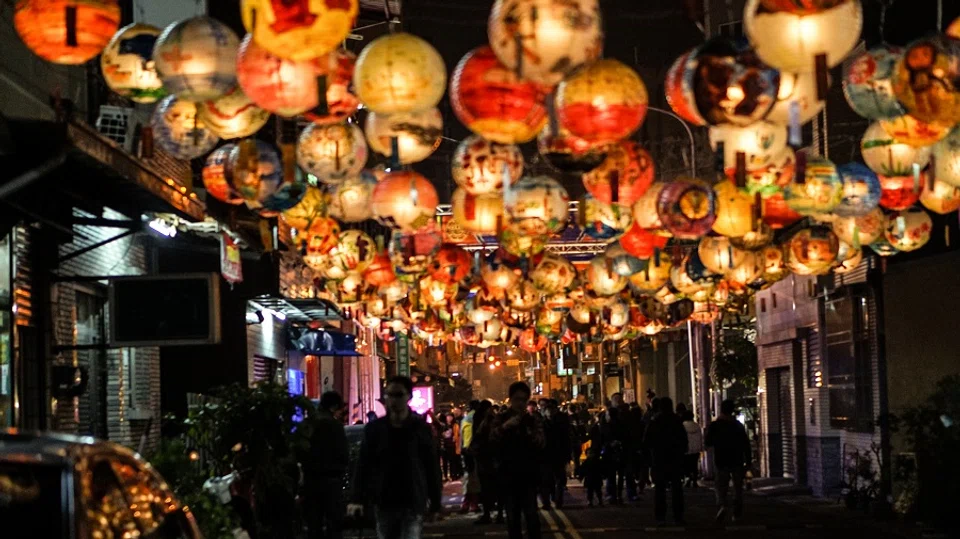
I've heard about cabaret cuisine (酒家菜) since I was a kid. Each time I heard it mentioned, I felt fearful and uncomfortable, as if the smiling serpent in the Garden of Eden with a bright red apple in hand had just appeared with all its ill intentions.
We didn't know what the adults did in confined spaces, neither did we know what unbelievable things they did after they had their meal.
Cabarets in those days were establishments where hostesses came out to greet, entertain, and drink with you. These places were uniquely patronised by businessmen - ordinary people would not set foot in them. It was a different world there: flamboyantly-dressed hostesses would be all smiles, leaning on the doors ready to fall into your embrace and do things that made you blush.
We were just children. We didn't know what the adults did in confined spaces, neither did we know what unbelievable things they did after they had their meal. In short, it must have been unthinkable and unimaginable! To a child's mind, having cabaret cuisine not only meant living a life of debauchery, but indulging in mysterious acts of sin and depravity. It must have been like King Zhou of Shang's "alcohol pool and meat forest" (肉林酒池): a hedonistic haven, graced by his licentious consort Daji (妲己, said to be possessed by a malevolent fox spirit), and countless skimpily dressed women twisting and turning their curvy bodies.
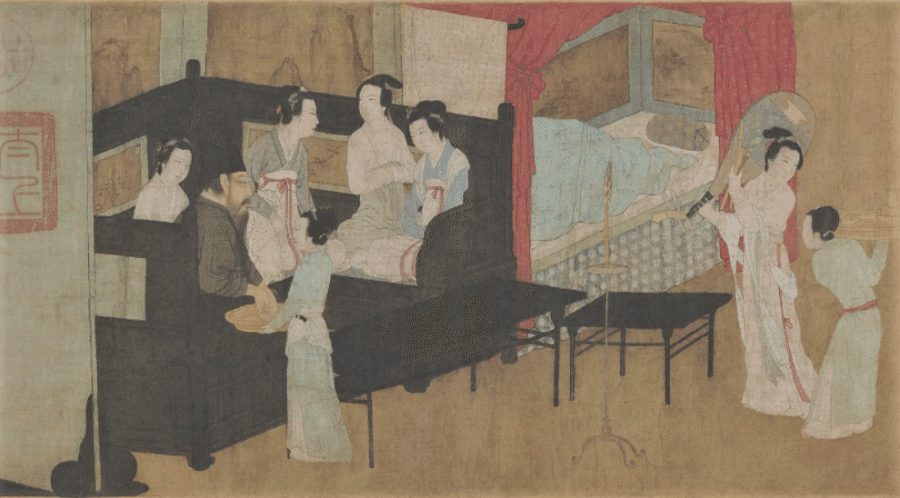
I once watched a Hollywood movie depicting the palace of an Arabian king. Nobles and kings were seated in a circle amid a spread of delicacies and fine wine served in gold glasses. Behind a partition were a group of barefooted female servants, their seductive eyes peeking over a chiffon veil hung over the bridge of their noses. With bellies exposed, a golden-threaded floral skirt embellished with small bells hung lazily on each of their hips. Then, they started to dance and did their waist and belly twists like a slithering snake. Their movements swift, like the pellet drums we played with as kids, stirred up the desires of the lower body. Whether it was a must for businessmen to negotiate business deals at these venues varied from person to person. But dining at these clubs with hostesses by one's side would definitely go beyond the simple act of eating and drinking. It is perhaps akin to the crazy partying as portrayed through the lens of the Hollywood movie?
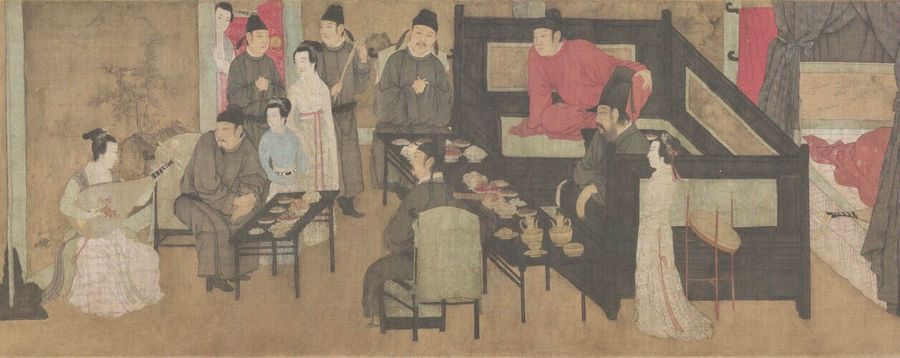
Father is a candid man. After he reached middle age, he was tired of the cheating that went on in the business circle and often cooped himself up at home, acting like he didn't have a care in the world. There was a period of time when he partnered with his friends in real estate development. Whenever there was a need for business entertainment, he would put his partner, Uncle Li, fully in charge of negotiations at the cabarets and clubs. Uncle Li enjoyed doing this a lot. Sometimes, he would come back late at night - drunk - to let Father know what had been negotiated. Intoxicated, his words made no sense - like a reincarnated child who spoke of things of his past life, or Rip Van Winkle from the eponymous short story who slumbered for years before coming back to life.
I decided that those dishes could never be eaten. I would never set foot in those places. Ever.
One afternoon, Uncle Li came to our house with his head and both elbows bandaged. His chin was also wounded and plastered with a gauze soaked in antiseptic lotion. He couldn't describe what exactly happened, and only remembered that he had gone to a club the night before and got really drunk. He couldn't remember how he got home - did the car flip? Or did he fall out of the car? In any case, he found himself lying on the roadside the next morning with a head injury and bruised arms and feet. How unlucky did he get!
I later overheard Mother whispering to Father. She asked him to dissuade Uncle Li from going to the clubs again as those were not decent places where business should be negotiated. He was lucky to have suffered a fall this time - if he had met gangsters, who knew what could have happened?
I was only 15 or 16 then and had a wild imagination. This conversation left a deep impression on me and I realised then that those cabarets and clubs were not only where fine wine and flirtatious women lurked and thrived - they were also where gangsters duelled and fought. I decided that those dishes could never be eaten. I would never set foot in those places. Ever.
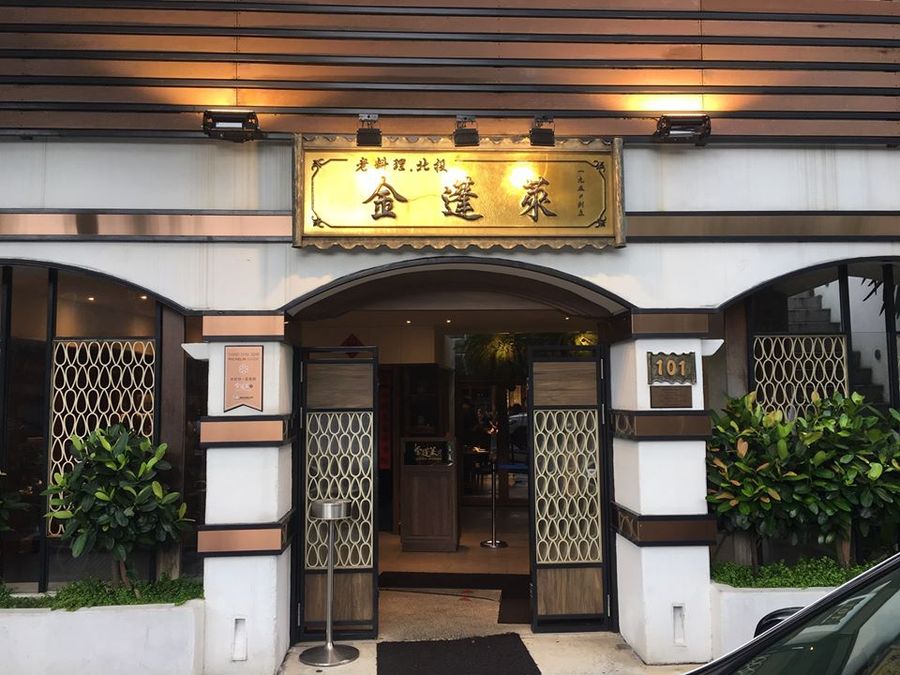
Gourmet writer Jiao Tong invited me to a culinary treat when I was in Taipei last year. He asked, "You've already eaten at all the famous restaurants in Taipei, how about having cabaret cuisine?" Realising my unease, he quickly added, "Don't worry, gone are the days where hostesses eat and drink with you. That old-fashioned mindset of yours belongs to the Jurassic period. The youngsters are going to laugh at you! Now, the only one that remains today has merely inherited the old-school cooking traditions of cabaret cuisine. There wouldn't be any skimpily dressed women lurking around!" And so, we went for a meal at Golden Formosa (金蓬莱).
...having experienced the passage of time, they can now be regarded as an intangible cultural heritage.
There were only four of us, but he filled the table with a sumptuous spread of the finest dishes - perhaps to make a point and turn my old-fashioned mindset around. The dishes were indeed delectable - they were authentic, delicious and came in generous portions. The food inherited the traditional cooking techniques of Fujian and incorporated characteristics of Fuzhou, Zhangzhou, and Quanzhou cuisine. Yet they were also cooked with indigenous Taiwan local produce, which elevated the dishes.
I was especially impressed by their crispy fried spareribs, Formosa sliced boiled chicken, fotiaoqiang (Buddha Jumps Over the Wall, a dish featuring a myriad of ingredients such as abalone, sea cucumber and fish maw), and hotpot with Spanish mackerel and rice noodle in casserole, not forgetting dishes that we often ate, such as traditional deep-fried pork with red vinasse, fishballs, and fried oyster pancake. They were all very delicious, and my mindset about dishes served in these restaurants was turned 180 degrees.
It turns out that these restaurants and the hostesses who had worked there have become things of the past. All that remains are their dishes - having experienced the passage of time, they can now be regarded as an intangible cultural heritage.
On the night before the kamikaze* were to fly their suicide mission, they were specially treated to a massive banquet of fine wine and beauty to mark the end of their youthful lives that had just started to blossom.
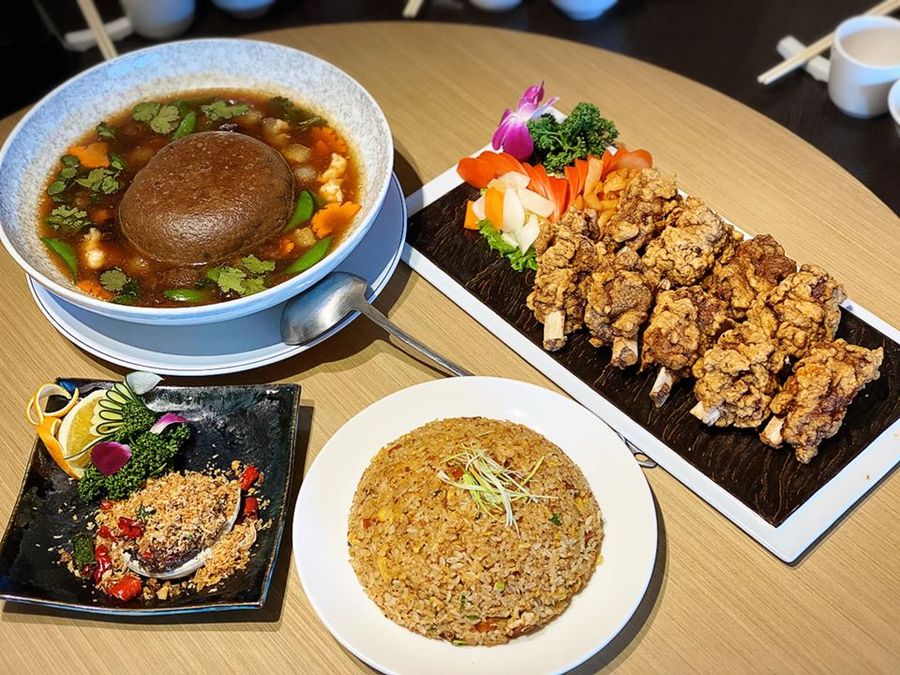
I recently held a calligraphy exhibition at Academia Sinica and gave the artists and musicians who have come all the way from Hangzhou to support me a dinner treat. I chose to dine at Golden Formosa. While the dishes were not the most refined, they represented Taiwan's nostalgic flavours.
We talked about the times when these dishes flourished. That was the time when the Pacific War was coming to an end. On the night before the kamikaze* were to fly their suicide mission, they were specially treated to a massive banquet of fine wine and beauty to mark the end of their youthful lives that had just started to blossom.
Kamikaze aircraft and Japan's rising sun flag are long gone, but the dishes associated with it remains. I couldn't help but let out a sigh. The female boss came over to greet and welcome this table filled with intellectuals and artists from all over the world. Bright-eyed, she excitedly told us that Rosamund Kwan (a Hong Kong actress) had just eaten here yesterday. I thought to myself, true beauties only appear if hostesses are gone.
*Taiwan was under Japanese rule from 1895 to 1945. On rare occasions, some naturalised Taiwanese joined Japanese pilots stationed in Taiwan in Japan's war effort by volunteering for kamikaze missions.
